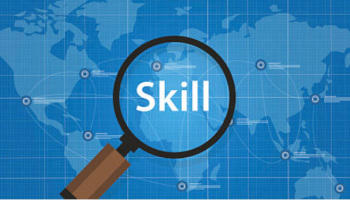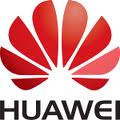 “Huawei respects and protects intellectual property rights (IPR) and is committed to an open IPR licensing system,” said Chen Lifang, Huawei Board Member and Senior Vice President, today in her speech at the EU Science: Global Challenges, Global Collaboration (ES:GC2) conference in Brussels. “The IP that Huawei develops and acquires as a result of our participation in European scientific research initiatives will first be applied in Europe in order to help improve Europe’s global leadership in the science and technology industries.”
“Huawei respects and protects intellectual property rights (IPR) and is committed to an open IPR licensing system,” said Chen Lifang, Huawei Board Member and Senior Vice President, today in her speech at the EU Science: Global Challenges, Global Collaboration (ES:GC2) conference in Brussels. “The IP that Huawei develops and acquires as a result of our participation in European scientific research initiatives will first be applied in Europe in order to help improve Europe’s global leadership in the science and technology industries.”
Chen Lifang continued, “Since its early years, Huawei has proactively advocated for strong IPR protection. Huawei is one of the first Chinese enterprises to have signed cross-licensing agreements with Western peers. Every year, Huawei pays approximately US$300 million in royalties to legitimately use the patented technologies of industry peers. Huawei also licenses our patented technologies to our peers. For example, just recently, Huawei and Spain’s Teletronic entered into a commercial cross-licensing agreement for core LTE patents.”
Huawei continuously contributes its own innovative patents to the industry. Each year, the company invests over 10{af589cdba9d77786c8c861317dbad60bba1e2ebbf56e2ffab874a1b59fde9ce3} of its revenue in R&D – with 10{af589cdba9d77786c8c861317dbad60bba1e2ebbf56e2ffab874a1b59fde9ce3} of that going to truly cutting-edge technologies. In 2012 alone, Huawei invested more than US$4.8 billion in R&D. And, as of 2012, the company holds more than 30,240 approved patents.
“Europe has a long history of scientific innovation. Nearly all modern scientific systems started from Europe in one way or another. Europe is also home to the world’s best talent, educational systems, and scientific research institutes. Most attractive to Huawei is Europe’s open scientific research environment and market system. The Horizon 2020 initiative of the European Commission promotes scientific research through government policies, openly absorbs capabilities from all over the world, and promotes cooperation between different parties. This initiative has set a benchmark globally. Huawei is committed to contributing to Europe’s innovative capabilities and to the Horizon 2020 initiative,” said Chen.
Huawei actively cooperates with European companiesand organizations on the development of break-through innovations and then puts these products into their first commercial use in Europe. For example, using its SingleRAN LTE solutions, Huawei deployed world’s first commercial LTE network for TeliaSonera in 2009 and deployed the world’s first LTE DD800 commercial network for Vodafone in 2011.Huawei has built two R&D centres in Europe, and R&D offices in 12 European cities, employing 800 R&D engineers. This year, Huawei established two new R&D offices in Finland and Ireland and plans to double its R&D staff in Europe in the next three years.
“Under the global IPR framework, Huawei proactively cooperates with other enterprises. We oppose IPR monopolies as they create competition barriers among enterprises, which in turn hold back continued innovation across the industry. In the end, it is consumers who lose out.”
“We urgently need to strengthen IPR collaboration and protection, including paid use mechanisms, to reduce disputes and promote innovation and technological advancement. To do this, enterprises, research institutes, academic institutions, government regulators, and other entities should cooperate in order to develop an open and unified industry standards system, thus providing a global platform for innovation. Huawei will leverage our global presence and influence to promote innovative cooperation across regions and around the world.”





